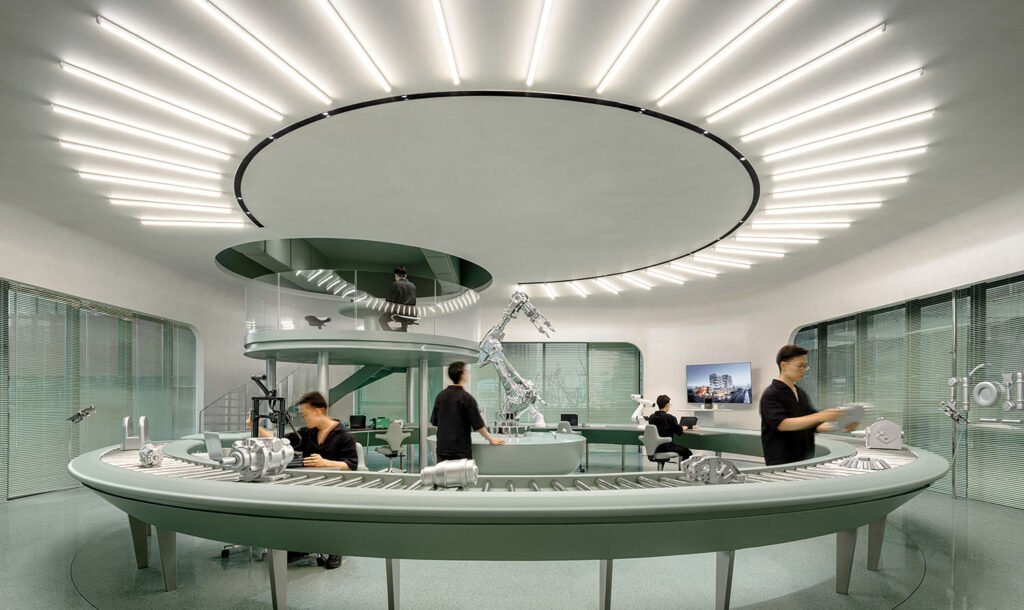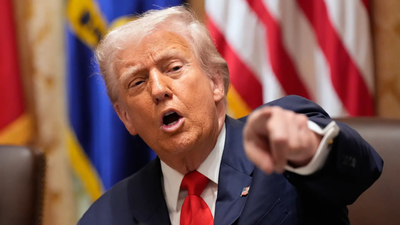The Dutch government has taken control of a Chinese-owned chip company based in the Netherlands following pressure from Washington, in a move that spotlights how countries are caught in the middle of the US-China battle for tech dominance.
Headquartered in the city of Nijmegen, Nexperia produces lower-end chips for consumer electronics, automobile and industrial applications, and runs chipmaking facilities in Germany and the UK.
The Dutch government said Sunday it had taken control of the company. Nexperia said its CEO and shareholder Zhang Xuezheng had been suspended from his post following a court order.
The move came after American officials told the Dutch government that Zhang would likely have to be replaced if the company was to be exempted from the US list of companies considered threats to national security or foreign policy interests, a court document published Tuesday revealed.
Companies on the so-called entity list face US export restrictions.
The rare move by Amsterdam came after escalating friction between the US and China, rekindled partly by Washington’s ramping up of export controls in late September.
The US Commerce Department significantly expanded the entity list by making any subsidiary at least 50% owned by a firm already on the list face the same restrictions as the parent company. The new rule, which provided a grace period until November for some scenarios, implicated Nexperia as a 100% owned subsidiary of Wingtech, a partially state-owned Chinese company which has been on the list since late last year.
Beijing, angered by Washington’s move to broaden curbs, further tightened its grip on exports of rare earths last week, prompting President Donald Trump to threaten new sky-high tariffs.
The Amsterdam Court of Appeal document referred to a meeting in June between the Dutch foreign ministry and the US Bureau of International Security and Nonproliferation.
“The fact that the company’s CEO is still the same Chinese owner is problematic,” the minutes of the meeting said, as cited by the document. “It is almost certain that the CEO will have to be replaced to qualify for the exemption from the entity list.”
The document mentioned that the Netherlands’ economic ministry had informed Nexperia of the possibility of the US introducing the so-called 50% rule.
In response to a CNN inquiry about the role of US pressure in the Dutch government’s actions on Wednesday, Nexperia pointed to a Tuesday statement, which said the Dutch government observed that Nexperia’s operations in Europe were being “compromised in an unacceptable manner,” raising concerns about the availability of chips critical to the European industry.
“It is important to point out that this is not against China or Chinese citizens,” Hannes van Raemdonck, Nexperia’s Head of Advocacy and Alliances, told CNN.
CNN has also reached out to Wingtech and China’s commerce ministry for comment about the US’ role in Nexperia’s seizure.
The Dutch economic ministry earlier cited “serious governance shortcomings” as a reason for its takeover of Nexperia. It said Sunday the “highly exceptional” action aimed to prevent a situation in which Nexperia made goods that would become unavailable in an emergency.

In the Tuesday statement, Nexperia also said the government’s intervention, prohibiting Nexperia from relocating company parts and making other decisions without the government’s permission, will last for a period of a year.
It added it is confident that a solution could be found in the face of the US export controls.
China similarly imposed export controls in early October barring Nexperia and its affiliates from exporting some components manufactured in China, the company said, adding that it is “actively engaging with the Chinese authorities to obtain an exemption from these restrictions.”
Vowing “never to succumb to external political pressure,” Nexperia’s parent company Wingtech said it opposed the “discriminatory treatment,” adding that it has initiated all legal and diplomatic channels to demand the revocation of the Dutch government takeover.
“The Dutch government’s decision to freeze Nexperia’s global operations on unfounded grounds of ‘national security’ constitutes excessive interference driven by geopolitical bias, rather than a fact-based risk assessment,” it said in a Monday statement.
On Tuesday, the Global Times, a Communist Party-run tabloid, published a strongly worded editorial, accusing Amsterdam of taking “predatory actions” that constituted a “serious harassment” of a Chinese-owned company.
“The Dutch government’s actions against Nexperia are extremely egregious, going far beyond normal commercial regulation and carrying blatant political coercion and discriminatory overtones,” the editorial read. “This should not be seen as a dispute between the Dutch government and a Chinese company – it is a blatant trampling of international rules by Netherlands.”








